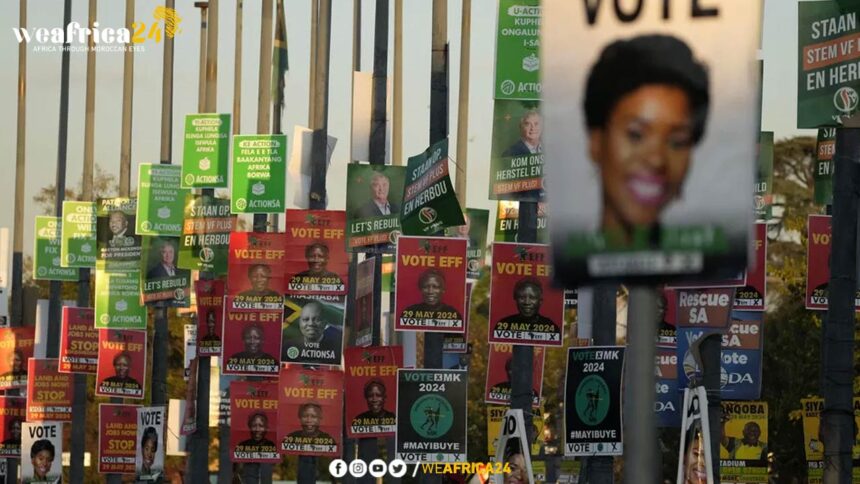As South Africa approaches a milestone election, the nation braces for a critical decision on whether to continue supporting the ruling African National Congress (ANC), which has held power since the end of apartheid 30 years ago.
President Cyril Ramaphosa and the ANC face significant challenges in maintaining their parliamentary majority, with opinion polls indicating that the party may receive less than 50% of the national vote for the first time in the May 29 election.
This potential decline does not necessarily signal an end to the ANC’s dominance in Africa’s most advanced economy. Despite the party’s waning popularity, no opposition party has yet emerged strong enough to replace it. Consequently, the ANC is still expected to secure the largest share of votes, though it may fall short of an outright majority.
In such a scenario, the ANC would need to form a coalition to remain in government and secure a second and final term for Ramaphosa as president.
The prospect of a coalition government introduces new complexities, given the recent failures of local-level coalitions in South Africa. The country’s severe challenges, including some of the highest levels of unemployment and inequality globally, require stable and principled governance.
Dr. Levy Ndou, a political analyst at Tshwane University of Technology, cautioned that coalition governments have often lacked principle, leading to instability. “In my view, that is something our leaders have to try and avoid,” Ndou told the Associated Press.
In South Africa, citizens do not vote directly for the president. Instead, they elect the 400-member National Assembly by voting for parties, which then receive seats proportional to their share of the national vote. The Assembly elects the president, meaning the party with a majority selects the head of state.
Since the first all-race elections in 1994, this has always been the ANC. However, this time the ANC may need to negotiate agreements with other parties to secure the 201 votes required to reelect the 71-year-old Ramaphosa and form a government.
The election process officially begins on Friday and Saturday, with South African citizens living overseas casting their votes at embassies and foreign missions. The main election will be held on May 29 across all nine provinces, determining the composition of both the national and provincial legislatures. Over 27 million of South Africa’s 62 million residents are registered to vote in what will be the country’s seventh fully democratic national election since the end of apartheid.
As South Africa stands on the brink of a defining electoral moment, the nation’s political future remains uncertain. The outcome will not only reflect the electorate’s dissatisfaction with the ANC but also shape the country’s trajectory in addressing its profound social and economic issues.







